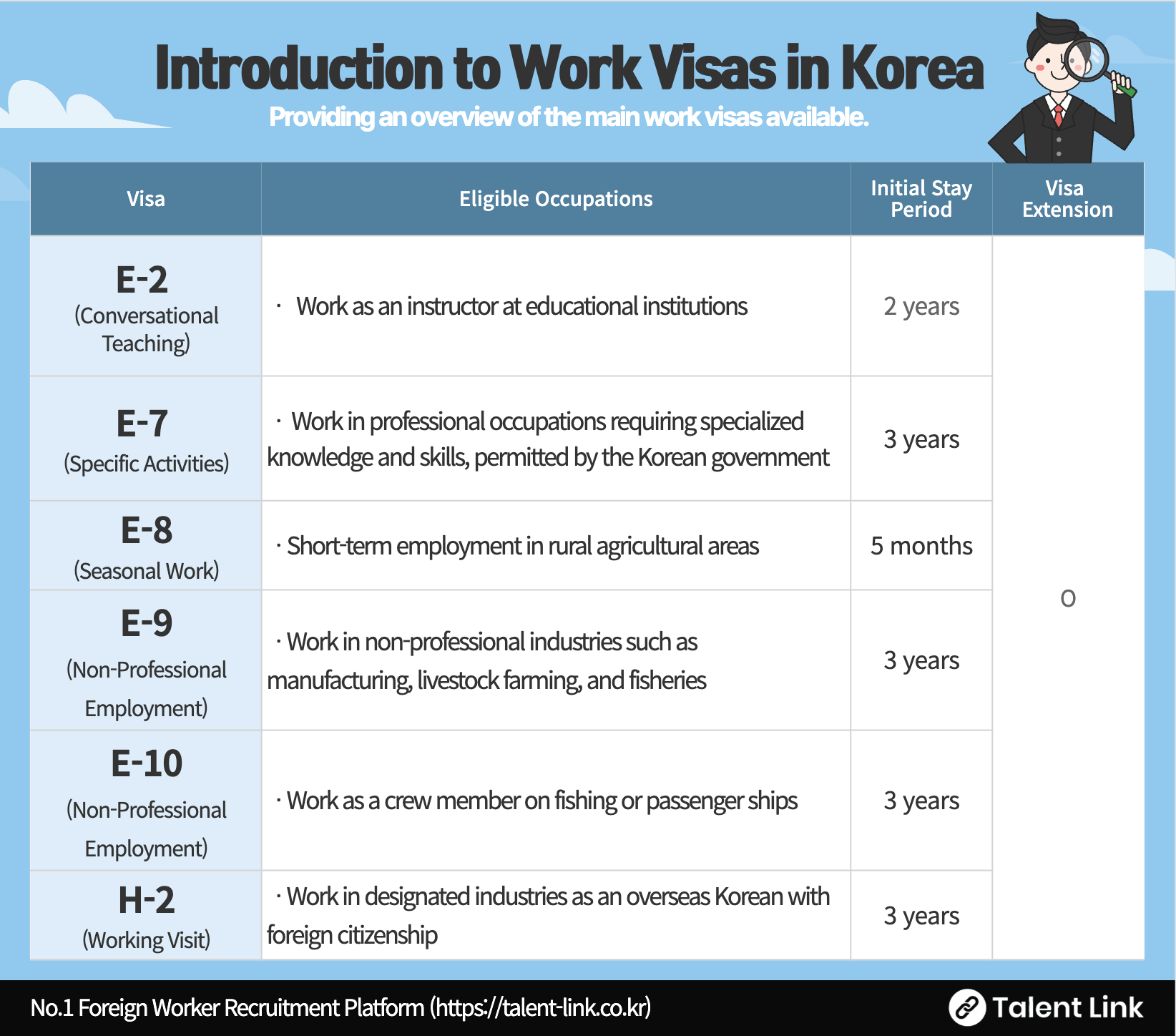
If you are considering working in Korea, one of the most important steps is to understand the types of work visas available and check whether you meet the eligibility requirements.
Each work visa has different conditions regarding employment type, length of stay, qualifications, and industries in which you can work. Therefore, it is crucial to understand these aspects thoroughly before applying.
Since there are various types of work visas, this post will focus on introducing the most commonly issued work visas in Korea.

E-2(Conversational Teaching Visa)
Issued to foreign language instructors at language academies, schools, corporate training centers, and other educational institutions.
Granted to skilled workers and professionals in 87 job categories permitted by the Korean government.
Issued to foreign seasonal workers participating in short-term employment programs to support Korea’s agricultural and fisheries industries.
Issued to foreign workers employed in manufacturing, agriculture, livestock farming, fishing, and other non-professional industries.
Only citizens from countries that have agreements with Korea are eligible.
Duration: 3 years, with an additional 1 year and 10 months extension possible.
*Eligible Countries for E-9 Visa
Thailand, Philippines, Sri Lanka, Vietnam, Indonesia, Mongolia, Pakistan, Uzbekistan, Cambodia, China, Bangladesh, Nepal, Myanmar, Kyrgyzstan, East Timor, Laos, Tajikistan.
Issued to foreign workers employed as crew members on fishing vessels or passenger ships in Korea.
Granted to overseas Koreans holding foreign citizenship, allowing them to work in designated industries.
Duration: 3 years, with an additional 1 year and 10 months extension possible.
* Eligible Countries for H-2 Vis
China, Uzbekistan, Kazakhstan, Ukraine, Kyrgyzstan, Tajikistan, Turkmenistan.
We’ve explored the most common types of work visas. Typically, those with a university degree or experience in a specific technical field apply for an E-7 visa. On the other hand, people working in general labor without specialized skills or experience usually get an E-8 or E-9 visa. These are the most common cases.